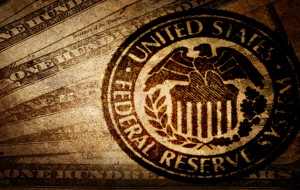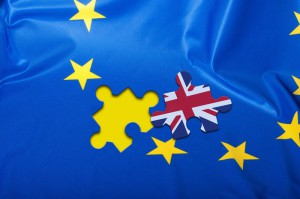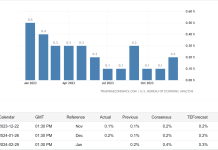FOMC minutes express concerns over lack of inflation
 Lael Brainard, a confirmed dove and permanent member of the FOMC will speak later today and will probably reiterate her concerns over the direction in which inflation is headed in the context of a rate hike at the December FOMC meeting.
Lael Brainard, a confirmed dove and permanent member of the FOMC will speak later today and will probably reiterate her concerns over the direction in which inflation is headed in the context of a rate hike at the December FOMC meeting.
Yesterday’s release of the minutes of the last FOMC meeting show that there were several dissenting voices concerned over the lack of inflation in the economy. There seems to be an almost “unseemly rush” to withdraw stimulus and “normalize” rates as patchy growth returns.
The dollar index slipped to a two-week low touching 92.82 despite a majority of FOMC members still feeling that a further hike was warranted. Unless inflation starts to pick up through the winter there may not be calls for a further hike until Q2’18 at the earliest. By then several current members of the committee, including the Chairman, will have departed.
This week’s inflation data with both input (producer) and output (Consumer) numbers set for release today and tomorrow will provide some advance guidance as to the Fed’s thinking.
Central Banks are beginning to turn hawkish in their outlook without a great deal of justification. Only the ECB seems to be seeing developments for what they, are believing that acting pre-emptively could be a mistake.
Brexit progress report unlikely to reveal breakthrough
Encouraging noises and dire warnings seem to be the order of the day when the two main Brexit negotiators hold a press conference.
 David Davis the U.K. Brexit Minister always appears confident, displaying an air of someone who is really trying to find a solution. Michel Barnier is more of a pessimist or at least a realist repeating his mantra that the U.K. needs to accept that until progress is made on the “three demands” no talks about the future relationship can take place.
David Davis the U.K. Brexit Minister always appears confident, displaying an air of someone who is really trying to find a solution. Michel Barnier is more of a pessimist or at least a realist repeating his mantra that the U.K. needs to accept that until progress is made on the “three demands” no talks about the future relationship can take place.
Davis seems to feel that “it will all work out in the end”, while Barnier wants actions and concrete proposals now. Who has most to lose in this game of brinkmanship? On the surface the U.K. will suffer most in the short term but despite President Macron’s almost Napoleonic attempts to insert himself in the process, it is France and Germany who will suffer financially as they attempt to make up the shortfall in the EU’s budget.
Were there to be a hard Brexit with no agreement and the Boris Johnson “go whistle” comment be adopted as policy, there could be profound consequences for the EU as member states who are currently portrayed as being fully supportive of a tough line understand the reality of the disappearance of the U.K.’s budget contribution.
Error, group does not exist! Check your syntax! (ID: 4)
Hammond has no plans for “no-deal Brexit”
Philip Hammond, the U.K. Finance Minister revealed his outline plans for the Autumn Budget which he will announce in full next month.
![]() He said that he is not making any plans to provide funds for life after a hard Brexit where no deal is agreed. This sentiment appeared to be contradicted later by Prime Minister Theresa May who commented that funds would be available for whatever Brexit is negotiated.
He said that he is not making any plans to provide funds for life after a hard Brexit where no deal is agreed. This sentiment appeared to be contradicted later by Prime Minister Theresa May who commented that funds would be available for whatever Brexit is negotiated.
Sterling has reached a point where, unless there is a significant breakthrough, it is immune to the continued regurgitation of the same news and comments.
Traders attention is currently being drawn to the possibility of a rate hike at next month’s MPC meeting. The decision seems very finely balanced with two confirmed hawks a wavering dove and several fence sitters yet to be convinced.
Next week’s employment and inflation reports should go some way towards providing clarity, but Sterling seems to be in a precarious position either way. Sold if they hike, as this will likely be a one-off and sold if they don’t as expectations are dashed. At the June meeting where pressure for a hike was similar, the fall inflation from 2.9% to 2.6% removed the need for a hike. Since then pressure has built again as prices have risen without any significant rise in incomes.

















